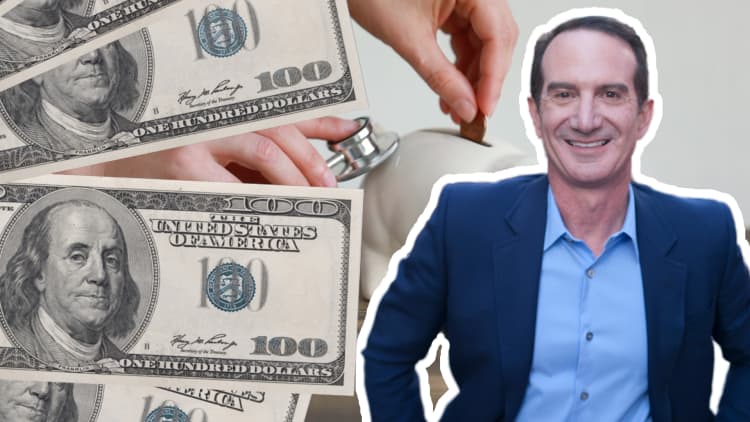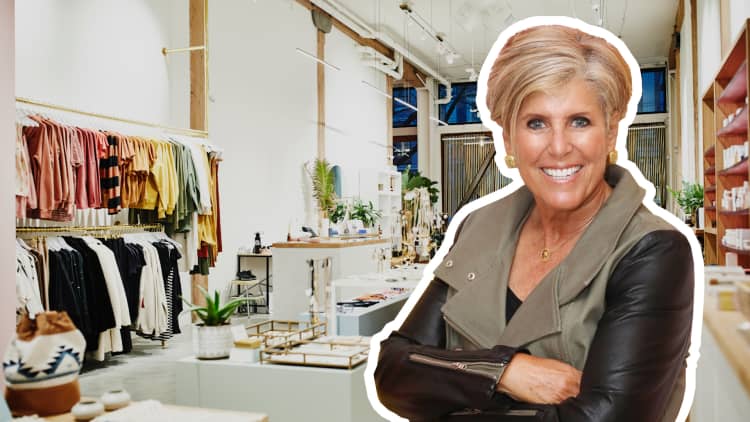When you're ready to become a homeowner, experts agree that you should avoid buying more space than you can afford. But how can you tell if your dream house is actually within your budget?
If the mortgage payment will be the same or more than what you're currently paying in rent, it's probably too expensive, says Suze Orman, personal finance expert and bestselling author of "Women & Money."
"Buy a house that you know you're going to be easily able to afford," she tells CNBC Make It. "The big mistake that many people make is that they're paying $1,500 a month for rent and they go out and look for a home and they can get a home for a $1,500 a month mortgage."
That's because buying a home costs more than just your monthly mortgage payment. "You're going to have to pay property taxes, maintenance, insurance," Orman says. Plus, if your down payment is less than 20 percent of the total cost of the home, it's likely that you'll need to cover private mortgage insurance, or PMI, as well.
The big mistake that many people make is that they're paying $1,500 a month for rent and they go out and look for a home and they can get a home for a $1,500 a month mortgage.Suze Ormanbestselling author of 'Women & Money'
When you buy a home, you'll typically need enough to cover six factors: the down payment, closing costs, moving expenses, repairs and maintenance, the first few months' mortgage payments and your emergency fund.
Here's a closer look at each expense.
Down payment
The down payment can range from 3.5 percent to 20 percent of the total cost of the home, depending on your credit score, mortgage interest rate and current financial situation. Cathy Derus, CPA and founder of Brightwater Financial, recommends putting down closer to 20 percent because it gives you a bigger stake in the property right away.
"You're going to be lowering your monthly payment in the future, and you also have a buffer," she says. "If housing prices decrease and you need to sell your home, you're not going to be as much underwater if you have more of that equity in the home up front."
Closing costs
Closing costs, including inspection fees, property taxes and prepaid interest, will typically tack 2-5 percent of the total cost of the home onto the final price.

Moving expenses
Don't overlook the money it will take to make your new house a home. In addition to physically getting your stuff there, you may have other expenses to cope with as you settle in. Do you need new furniture, or more of it? Do you want to decorate as soon as you move in?
"Unless your home is brand new, there could be things that you'll need to upgrade or add," says Eric Roberge, certified financial planner and founder of Beyond Your Hammock. "It's human nature to want to make the home feel, well, 'homey' and comfortable, so people often end up buying furniture after they move in."
Think about the changes you'll want to make right away, from re-doing your decor to giving the walls a fresh coat of paint.
Mortgage payments
Will you be able to comfortably keep up with your mortgage in the first few months after purchase? Some lenders require additional cash reserves to prove that you're able to make payments, Derus says. Even if it's not required, it's smart to know that you're set.
"What's to say that a week after closing, the company you work for goes bankrupt and you lose your job, or something like that?" Derus says. "You want to make sure that you have additional money set aside, just in case something happens."
You should include taxes and insurance payments in this category as well.
Repairs and maintenance
Chances are, your house won't be perfect on move-in day. Whether it's adding a fence or getting rid of that broken yellow light fixture in the living room, you'll want to have cash ready for repairs and maintenance. You'll also need to budget for things that can happen months, or years, down the road, such as replacing a broken water heater or updating the landscaping.
Going forward, homeowners should expect to pay 10-to-20 percent of the price of the home each year, according to Derus. That covers expected costs, such as mortgage payments, insurance, utility bills and taxes, and also maintenance costs.
Plan to have a savings cushion for irregular expenses, too, such as replacing a leaky roof or installing a security system.

Emergency fund
Buying a home typically signifies that you've reached a major savings goal, so it's normal to see your accounts get low. But you should still have a separate emergency fund stocked with three-to-six months' worth of living expenses.
If closing on your house means emptying out your savings altogether, you might want to rethink whether you can truly afford a home right now.
These factors, when added together, will allow you to calculate a ballpark figure for how much you'll need saved up to be able to afford a home. Keep in mind that you don't want this number to exceed 25-30 percent of your income for the year, Derus says.
If you do the math and would be barely able to scrape by, consider holding off until you're in a more stable financial position.
Ultimately, "a house can be very, very expensive," Orman says. And owning isn't worth years of financial hardship and stress. "You need to know that you actually can easily afford the house that you have."
Like this story? Subscribe to CNBC Make It on YouTube!
Don't miss: Suze Orman: Don't retire, or claim Social Security, until you turn 70



